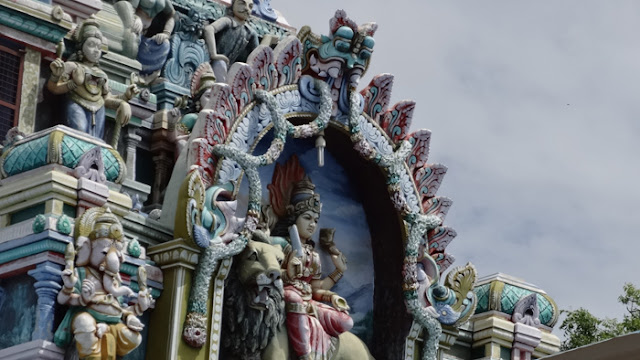Nilakottai Mari Amman Kovil, Dindigul
Nilakottai Mari Amman Kovil is a big and famous temple
at Nilakottai. Every Friday and Special pooja day lots of people are coming to
this temple. The famous festival (in Tamil called Thiruvizha) on this temple celebrated
every year. This festival is celebrated for a week.
It is not just a Temple ritual, but is a grand festival
for the whole town. Around 30 village peoples nearby this place will come with
their families and celebrate. It begins with Kodi Etram (Raising Flag) and
concludes with Poo Pallakku (procession in flower decorated Pallakku). On each
day, the Utsava Murthis (Mobile Deities) will be nicely decorated and taken in
procession, once in the morning and once in the evening on different Vahanams
(vehicles).
All the schools will be closed for a week. Kids are very
excited and eagerly waiting for this week. They have a lot of fun like elephant
ride, giant wheel, balloon shooting for kids, on the spot toys store, music
shows, and dance shows every night, etc.
First day: Kodi Etram on the Center of the Temple,
they raise the flag to announce that the festival is started.
Second Day: Thee Chatti Peoples carry the hot pot on
their hand and come around the Temple to stronger their prayer. For those have kids
after a long time of their marriage, they will do "Karumbu Thottil" –
Two persons will hold the two edges of the Sugar cane, and the cloth will be
tied on the center portion of it. The kid will be in the center portion of the
cloth (In Tamil "Thottil"). They come around the temple.
Third Day: Pal Kudam Peoples hold the Pot with Milk
and come around the Temple and pour that milk for God.
Fourth Day: Unchal Seva: That day they
decorated the Deities and keep them on the Golden Swing. Ladies are singing the
songs to praise the God.
Fifth day: Poo Pallakku: This is the last day of night time celebration.
Deity is taken in procession with flower-decorated Pallakku. Ladies are
carrying the Mulaipari (Two weeks before, they planting 9 grains in soil placed
in earthen dishes) before this Pallakku.
In 2012, the temple celebrated its 100th year.




































